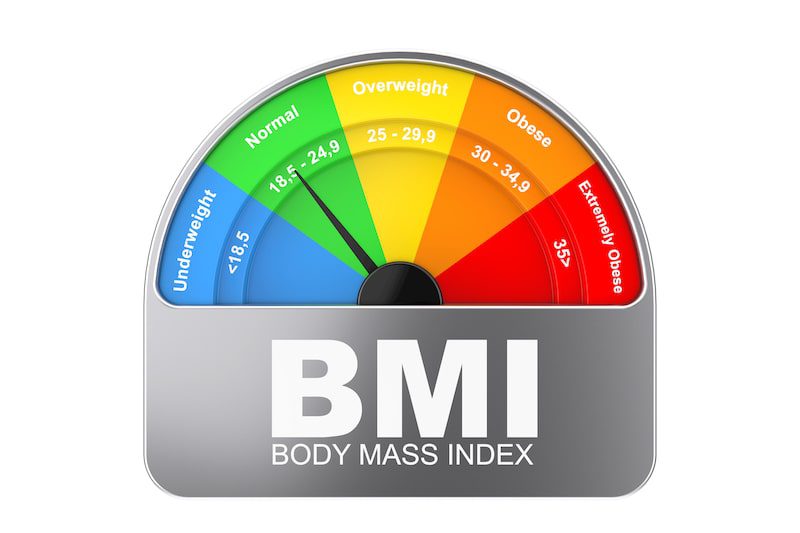Does Your BMI Affect Your Plastic Surgery Candidacy?
Posted December 07, 2021 in Plastic Surgery, Plastic Surgery Candidacy
3 Minute Read:
During your initial plastic surgery consultation, your surgeon will identify your BMI and discuss how this interacts with your surgery and surgical results. BMI stands for body mass index; it explains your body size by considering your height and weight.
A high or low BMI can indicate health concerns such as hypertension, diabetes, and more.

Why Does My BMI Matter When Getting Plastic Surgery?
A healthy BMI is critical when considering plastic surgery as it helps your surgeon determine if you are a suitable candidate.
Plastic surgery can be dangerous for individuals with a BMI that is too high or too low. Therefore, being in the acceptable BMI range helps minimize the risks both pre and postoperatively.
Some of these risks include anesthesia complications, heightened surgical risk, poor and/or delayed healing, increased inflammation, unattractive scarring, and other health-related concerns.
What Is a Healthy BMI for Plastic Surgery?
If you are considering cosmetic surgery, it is important to understand that surgery should not replace a healthy lifestyle; rather, it should complement it.
With that said, a healthy BMI range is in the 25 to 29 range, and a good candidate for plastic surgery should have a BMI of 30 or below, and though some plastic surgeons may agree to operate on BMI’s as high as 35 to 39, they draw the line at BMI 40 and above.
Individuals with a BMI of 40 and above are considered obese or morbidly obese and not ideal candidates for breast and body plastic surgery procedures such as liposuction and tummy tuck surgery.
In many instances, such candidates ought to lose some weight naturally before the surgery through a change of diet or exercise.

Why Is a High BMI Not Ideal for Plastic Surgery?
Before seeking cosmetic surgery, it is important to consider the various preoperative and postoperative processes significantly affected by a high BMI.
For example, a strong immune system speeds up the healing process. However, the body’s immune system lowers when you carry too much weight or have unhealthy eating habits. The state of your immune system also affects wound healing and scar formation.
A high BMI indicates excess fat, and excess fat may mean a fatty liver. This greatly affects the workings of your liver, putting you at higher risks during surgery.
Lastly, a high BMI affects the inflammation levels during your healing process. You are at risk of chronic inflammation with a high BMI, which means you will experience more swelling, fluid retention, bruising, discomfort, and increased pain during your healing process.
Are You a Candidate for Plastic Surgery? Find Out Now!
Like any other surgery, cosmetic surgery poses its own set of risks that you need to consider carefully before going ahead with it. Should you choose to go forward with the surgery, it is critical that you obtain and maintain a healthy BMI for better results and a complication-free healing process.
To see if you are a candidate for body contouring procedures, contact Careaga Plastic Surgery by calling (305) 960-7511 or filling out our online contact form. You can also see how Dr. Careaga and Dr. Durand have helped their previous patients by visiting our plastic surgery before and after photo galleries.
